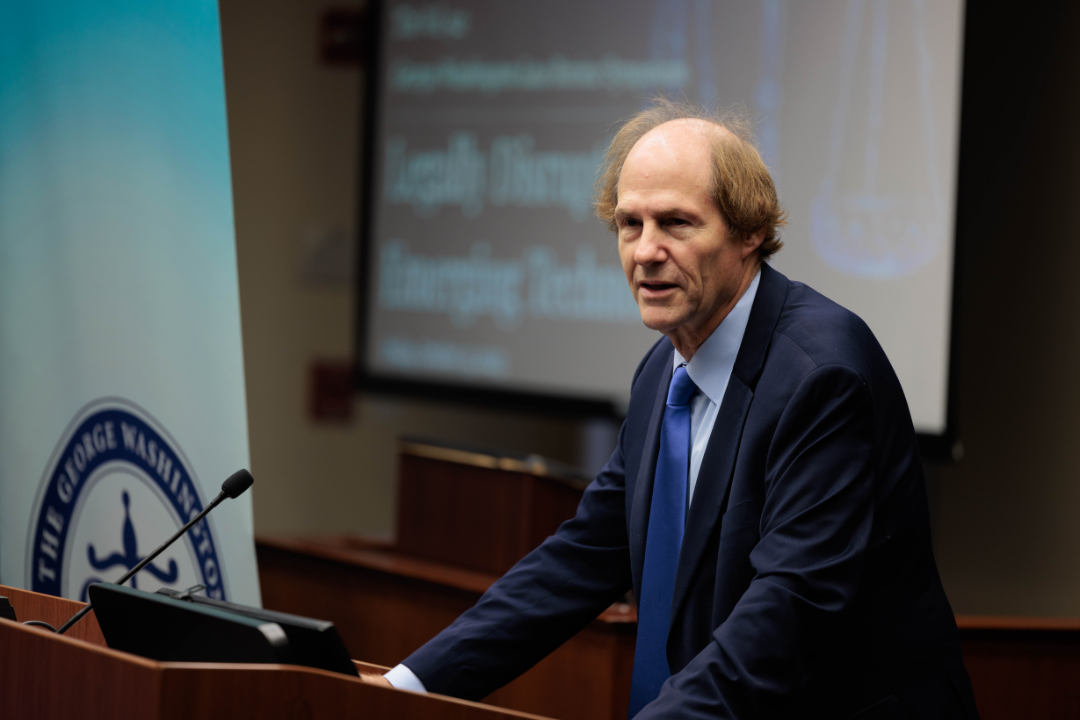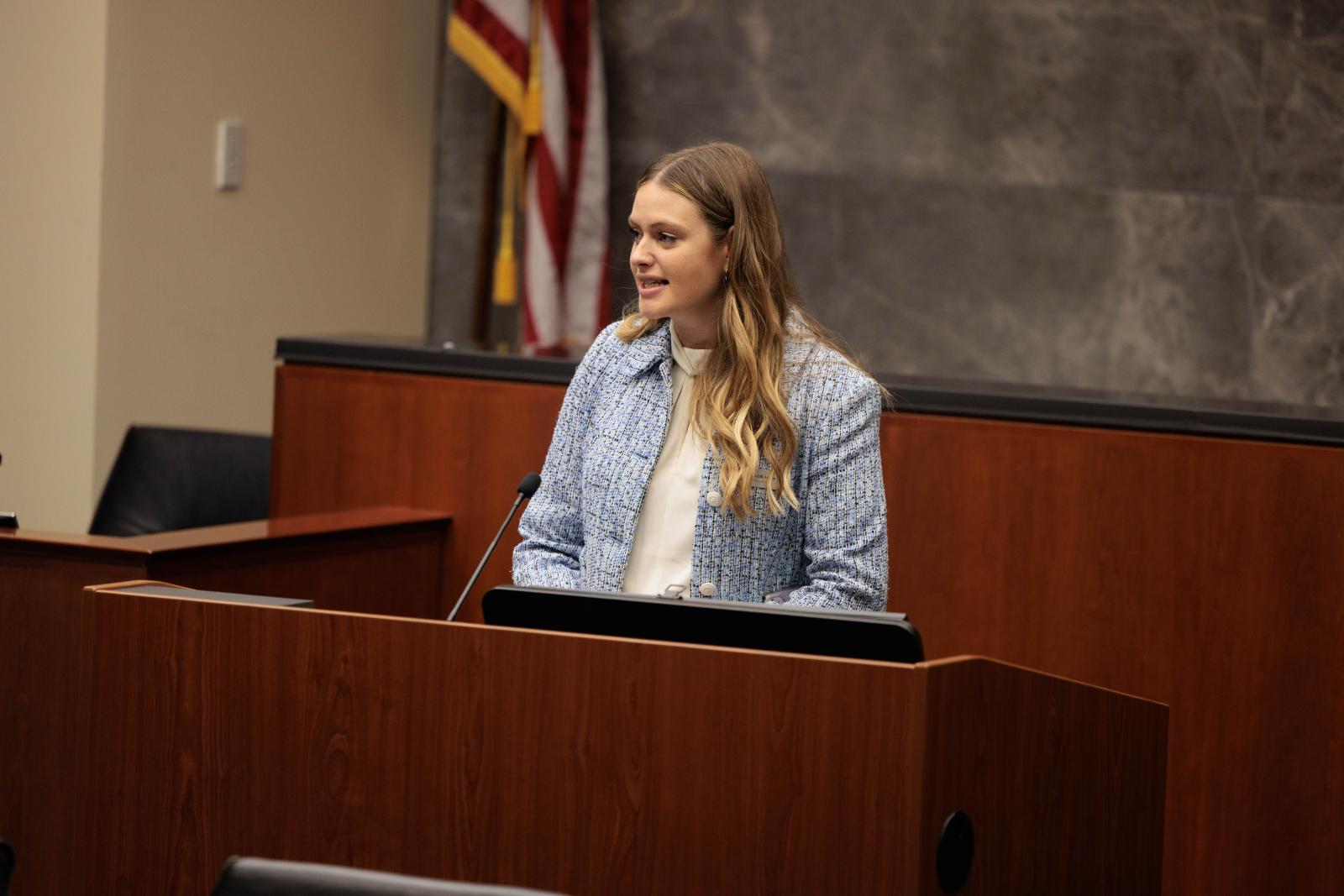The George Washington Law Review successfully hosted its 92nd annual symposium, Legally Disruptive Emerging Technologies, on Friday, October 13, 2023. This year's symposium was planned in conjunction with Associate Dean Michael Abramowicz and focused on the regulation of digital technologies that promise or threaten to disrupt the legal process itself. The Law Review's Senior Projects Editor Minji Doh's leadership brought together distinguished scholars and leading practitioners to discuss the important legal questions raised by emerging technologies.
Professor Cass Sunstein of Harvard Law School delivered a thought-provoking keynote address, which addressed First Amendment issues raised by AI-generated content. Professor Sunstein began his address by arguing that speech that is unprotected by a human speaker also is unprotected when it is generated by AI. Next, he discussed whether the First Amendment protects the rights of human viewers and listeners who are seeking to see, hear, or read content generated by AI. Professor Sunstein closed his address by arguing that traditional categories of content restrictions provide helpful guidance in understanding the scope of First Amendment rights concerning AI-generated content.
GW Law Review Symposium Opening Remarks Keynote:
Following Professor Sunstein’s address, J.W. Verret of George Mason Antonin Scalia Law School moderated Panel I: Adaptation Strategies in the Era of Blockchain Technology, which featured discussion and debate from Morshed Mannan of the European University Institute, Yuliya Guseva of Rutgers Law School, Thomas D. Grant, former Senior Research Fellow at Cambridge University, and Carla Reyes of Southern Methodist University Dedman School of Law. The panel explored the implications of blockchain networks and transactions for the legal system and how best to regulate cryptocurrency given its decentralized nature. After the panelists described their papers, Professor Verret facilitated a discussion about whether blockchain technology and private money can coexist with traditional institutions.
GW Law Review Symposium Panel I:
In the afternoon, Alicia Solow-Niederman, GW Law moderated Panel II: Navigating Regulation and Enforcement in the A.I. Era, which featured discussion and debate from Michael Abramowicz, GW Law, and John F. Duffy of the University of Virginia School of Law, David Engstrom of Stanford Law School, Daniel Ho of Stanford Law School, and Richard Re of the University of Virginia School of Law. The panel focused on different aspects of regulating AI, including whether the legal system is prepared to deal with new technologies such as AI, challenges in public sector AI use, AI’s regulatory alignment problem, and the use of AI by judges and in legal writing. Following the panelists’ presentations, Professor Solow-Niederman facilitated a discussion about how the regulation and use of AI will change as AI continues to evolve and become more sophisticated.
GW Law Review Symposium Panel II:
The symposium concluded with a fireside chat moderated by Associate Dean for Academic Affairs Aram Gavoor, GW Law, which featured Commissioner Keith Sonderling of the US Equal Employment Opportunity Commission, Commissioner Hester M. Peirce of the US Securities and Exchange Commission, and Deputy Assistant Attorney General Jonathan Smith of the US Department of Justice Civil Rights Division. The discussion focused on federal agencies’ use and regulation of artificial intelligence and the impact of emerging technologies on the regulatory environment. The panelists discussed how legally disruptive technologies have impacted the rulemaking and enforcement process and how their agencies collaborate with other federal agencies in regulating emerging technologies. The symposium concluded with remarks from Dean Abramowicz and a small reception in the Kelly Lounge following the event.
GW Law Review Symposium Fireside Panel:
The Law Review sincerely thanks Dean Abramowicz for his help in putting together this year’s symposium. Articles from this year’s participants will be published in Volume 92, Issue 6 of the Law Review late next year.
Many thanks to Kendall Archer, Editor-in-Chief, Minji Doh, Senior Projects Editor, Carolyn Harris, GW Law Administrative Associate, and Professor Bradford Clark, Faculty Advisor of the Law Review, and the entire Law Review staff, who did so much to make this event a reality.







